Paulo Boi - Il Bove
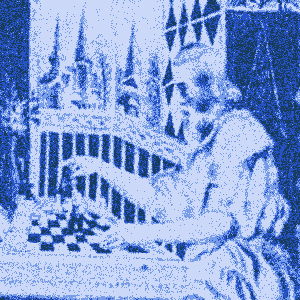
Paulo Boi
He came on the scene at the same time as the earliest great Italian masters like Leonardo, Polerio and Salvio. Together with these he would wrest dominance of the chess world away from Spain.
They set in place Italian dominance of chess for two centuries. Boi was recognized as the World Champion after the death of Leonardo in 1587.
Early Years

Paulo Boi grew up in the historically rich Syracuse
He had mathematics, history or the arts to choose from. One thing interested him more than anything. Young Boi turned to chess as his favorite pastime.
As he grew through his adolescent years into adulthood, he became a great chess player. It is said that he defeated the three best players in Sicily in a blindfold simul. From that time Boi was considered the best player in Sicily.
Reaching Rome
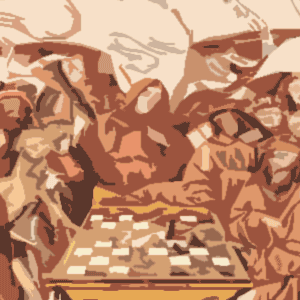
Chess was popular in the courts of Rome
Back in Italy he found himself playing Pope Paul III in a match. Boi won the match and was offered the chance to be a Cardinal. This he declined. He and Leonardo were by now the two top players in Italy. By all accounts they were considered even in strength.
They were said to differ in style and temperament. Leonardo was cautious and careful, taking time with his moves and making few mistakes. Boi moved faster and took more risks. We must speculate through written accounts, reading between the lines without the aid of seeing much of his play. It sounds like Boi liked his tactics. We only have one opening from a game of his against Scovara.
International Tournament in Madrid

Phillip II staged the first International Masters Tournament in chess history
It was a chastening experience for the Italians. Leonardo and Boi in particular doubled down on their chess studies in a bid to significantly improve their respective games. They toiled for years and then their chance came.
Phillip invited them both to Spain to take part in what later came to be recognized as the first International Masters Tournament. They went and both beat Ruy Lopez in Madrid, making Italy the premier chess power.
Leonardo won the tournament to be recognized as the new World Champion. It was still a successful event for Boi as he was rewarded with 500 crowns and an annual pension.
Adventures in Portugal and Across Europe
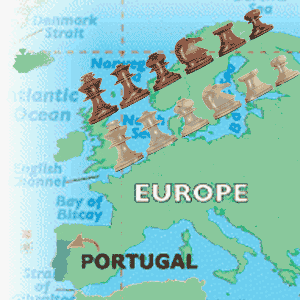
Paulo Boi played for stakes in Portugal and across Europe
Both stayed in Portugal for some time. When Leonardo returned to Italy, Boi stayed on in Lisbon. He capitalized on his skill as a chess player, winning high stakes games. He was even able to give material odds or play blindfold or simultaneous games.
He went all over Europe playing in this way. He was making anything up to 8,000 scudi a day in winnings. It was during this period that his luck took a turn for the worst.
Master Becomes a Slave

Paulo Boi found himself sold into slavery
Boi taught the Turk how to play chess and suggested that he could make him money by playing for stakes. The Turk agreed and Boi began to play against all-comers. He had found the key to his eventual liberation.
He won lots of money for the Turk over the chess board. He won his freedom from the Turk over the board along with 2,000 Zecchini. He returned to Italy and settled in Naples.
World Champion at Last
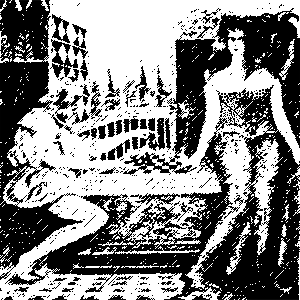
Paulo Boi was World Champion from 1587-98
When Leonardo died in 1587, Boi was then considered World Champion. He founded a chess academy at the palace of Prince Fabrizio Gesualdo of Venosa. He passed on his ideas to the next generation.
Alessandro Salvio came to challenge him for his throne in 1598. Salvio won the match to become the new champion. Boi died three days later. Some say he got a cold while out hunting. Others say he was poisoned by enemies. It is difficult to determine which, if either, account is true.
Moving On
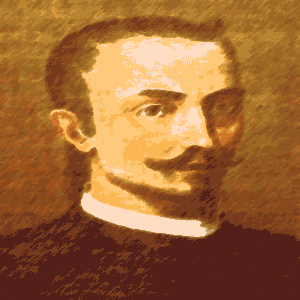
Giulio Cesare Polerio
He was a very intelligent and resourceful man who understood how to succeed in life. He also carried with him the spirit of an adventurer. He liked to gamble, not only with his moves on the board, or with the money in his pocket. He went to places and lived a life that more timid men might not have dared. He experienced life to the full.
He would have been happy to know that Italy would have a rich vein of players long after his time to replace him and his many great contemporaries. One of the greatest of these contemporaries was Giulio Cesare Polerio.






